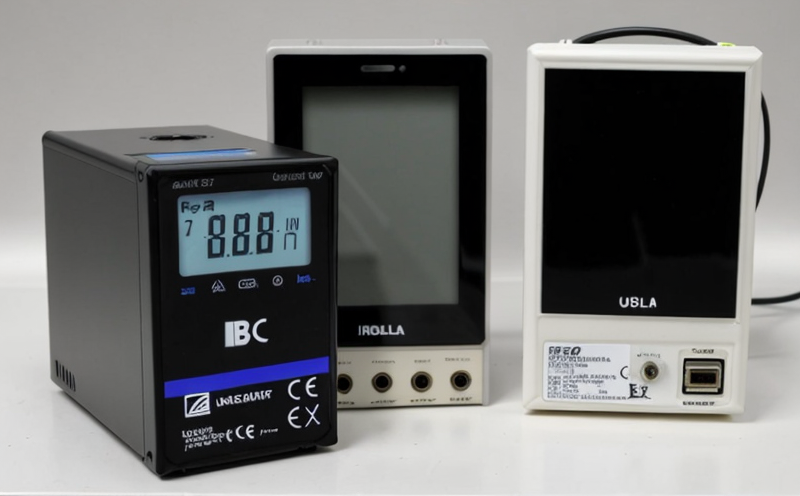SAE J2380 Consumer Electronics Battery Vibration Testing
The SAE J2380 standard is specifically designed to ensure that consumer electronics batteries can withstand the rigors of everyday use and transportation. This test evaluates how well a battery performs under conditions of vibration, which are common in environments such as vehicles, airplanes, or industrial settings.
Consumer electronic devices like smartphones, laptops, and tablets have become an integral part of our daily lives. These devices rely on batteries for power, but the reliability of these batteries can be compromised by environmental factors, including vibration. The SAE J2380 standard aims to address this concern by providing a standardized method for testing how well consumer electronics batteries handle vibration.
The test procedure outlined in SAE J2380 involves placing the battery inside a sealed container and subjecting it to controlled vibrations. The intensity, frequency, and duration of these vibrations are meticulously calibrated to simulate real-world conditions that the battery might encounter during its lifecycle. This ensures that any potential weaknesses or vulnerabilities in the battery design are exposed early on.
One of the key aspects of this testing is the use of a vibration test machine capable of generating precise and repeatable vibration patterns. The machine simulates various types of vibrations, including road noise from vehicles, airplane turbulence, and factory-floor mechanical stress. By subjecting the battery to these conditions, engineers can identify any weaknesses in the design or materials used.
The SAE J2380 standard also specifies acceptance criteria that must be met for a battery to pass the vibration test. These criteria are based on performance metrics such as voltage stability, internal resistance, and leakage current. If the battery fails to meet these criteria after being subjected to the prescribed vibrations, it indicates that further improvements may be necessary in its design or manufacturing process.
Another important aspect of this testing is the preparation of the specimens. Before the test begins, the batteries are conditioned according to manufacturer specifications to ensure they are at optimal performance levels. This step is crucial because any discrepancies in battery state-of-charge could lead to inaccurate results.
The SAE J2380 standard also provides guidance on how to interpret the data collected during the test. Engineers use this information to make informed decisions about design modifications or process improvements that can enhance the durability and reliability of consumer electronics batteries.
Eurolab Advantages
- Comprehensive Testing Capabilities: Eurolab offers a wide range of testing services, including SAE J2380 Consumer Electronics Battery Vibration Testing. Our facility is equipped with state-of-the-art equipment that can simulate various environmental conditions.
- Expertise and Experience: Our team consists of highly qualified professionals who have extensive experience in the field of battery testing. They stay updated with the latest standards and trends to ensure our services meet international quality benchmarks.
- Confidence in Compliance: By partnering with Eurolab, you can be assured that your products will comply with all relevant regulations and standards. This reduces the risk of non-compliance issues and potential product recalls.
Customer Impact and Satisfaction
- Enhanced Product Reliability: By subjecting your batteries to SAE J2380 testing, you can identify any potential weaknesses early on. This allows for timely corrections and improvements, leading to more reliable products.
- Improved Customer Trust: Products that pass rigorous tests like SAE J2380 are perceived as higher quality, which enhances customer trust and satisfaction. This positive perception can contribute to increased market share and customer loyalty.
- Competitive Advantage: Demonstrating compliance with international standards such as SAE J2380 can give your company a competitive edge in the global market. It signals that you are committed to delivering high-quality products, which is increasingly important in today’s consumer electronics landscape.
International Acceptance and Recognition
- ISO/IEC Standards Compliance: Eurolab ensures that our testing services comply with international standards such as ISO 17025, which is recognized worldwide for its stringent requirements on laboratories.
- ASTM and EN Standards Support: We also support ASTM and European standards like EN 61960, ensuring broad acceptance across different regions. This global recognition enhances the credibility of your products in international markets.





